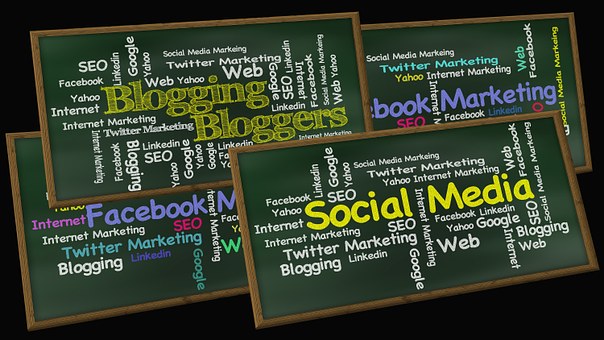Personal Branding vs. Business Branding: What’s Right for You?
Are you trying to choose between personal branding and business branding? This comprehensive guide explores their key differences, pros and cons, real-world examples, and strategies to help you decide what suits your vision best.

In today’s content-saturated world, branding has become more than just a visual identity or catchy slogan. It is a strategic tool that helps individuals and companies define how they want to be perceived, build trust, and connect meaningfully with their target audience.
For solopreneurs, freelancers, startup founders, and creative professionals, one of the most common questions is:
Should I build a personal brand or a business brand?
This decision is not just cosmetic—it impacts everything from your marketing strategy and scalability to your audience engagement and long-term exit potential.
In this in-depth blog by Jumpy Jargons, we will explore both concepts in detail and help you make an informed decision.
"Lorem ipsum dolor sit amet, consectetur adipiscing elit."
Understanding Personal Branding
Personal branding refers to the deliberate effort to shape and influence public perception of an individual by positioning them as an authority in their industry, showcasing their personality, and expressing their values and vision. It is the image and reputation you build around yourself, rather than around a product or service.
Personal brands are often rooted in authenticity, relatability, and storytelling. The person becomes the brand. Their name, face, experiences, voice, and philosophy all contribute to how the brand is perceived.
Common Traits of a Personal Brand:
- Built around a single person’s identity and expertise
- Driven by storytelling and personal values
- Relies on content creation, public appearances, or thought leadership
- Strong focus on relatability and direct audience engagement
Examples of Personal Branding:
- Gary Vaynerchuk – Built an empire around his personal thoughts on entrepreneurship, hustle culture, and marketing.
- Ankur Warikoo – Known for his personal insights, productivity tips, and self-awareness content.
- Marie Forleo – Offers business coaching rooted in her personal journey and personality-driven branding.
Understanding Business Branding
Business branding, on the other hand, refers to the identity a company builds that is separate from any one individual. It involves creating a unique name, look, tone, and reputation for the business entity. Business branding is strategic, scalable, and often focused on customer experience, consistency, and long-term growth.
The brand becomes an ecosystem that can function, grow, and be sold independently of its founder.
Common Traits of a Business Brand:
- Focuses on a collective mission and customer promise
- Includes visual branding such as logo, color scheme, and typography
- Emphasizes professionalism, consistency, and values
- Can operate with or without the founder’s direct involvement
Examples of Business Branding:
- Apple – Known for innovation, design, and premium experiences.
- Nike – Built on the promise of performance and empowerment.
- Zomato – Maintains a fun, engaging, and quirky brand voice that connects with a wide audience.
Personal Branding vs. Business Branding: A Strategic Comparison
| Feature | Personal Branding | Business Branding |
|---|---|---|
| Identity | Tied to an individual | Tied to a product or service |
| Trust-building | Quick and emotional | Gradual and professional |
| Scalability | Limited (person-dependent) | High (team and system-based) |
| Transferability | Not easy to transfer | Easy to sell or franchise |
| Communication style | Authentic, story-driven | Customer-centric, structured |
| Risk | Higher personal scrutiny | More protected reputation-wise |
| Best suited for | Freelancers, creators, coaches | Startups, SMEs, D2C businesses |
Advantages and Disadvantages of Personal Branding
Advantages:
- Faster Trust Building – People connect with people. A personal brand often feels more relatable and trustworthy.
- Flexibility – Easy to pivot into new industries or topics without rebranding completely.
- Ideal for Solopreneurs – Especially valuable for consultants, freelancers, and influencers.
- Cost-Effective Start – You are your brand, so minimal investment is required at the beginning.
Disadvantages:
- Hard to Scale – It is difficult to separate yourself from the operations when the brand revolves around you.
- No Exit Strategy – Selling or transferring a personal brand is rarely feasible.
- Constant Visibility Required – Consistency in content, appearances, and engagement is essential.
- Personal Life Affects Business – Personal reputation or controversies directly impact brand perception.
Advantages and Disadvantages of Business Branding
Advantages:
- Scalability and Structure – Teams, systems, and departments can grow around a centralized brand.
- Long-Term Vision – Can be sold, franchised, or passed on without dependency on any one person.
- Professionalism and Consistency – Strong visual identity and customer communication enhance market credibility.
- Broader Appeal – Messaging and design can be tailored to fit a wider audience or multiple market segments.
Disadvantages:
- Takes Longer to Build Trust – Without a face or personality, business brands need more effort to create emotional connections.
- Higher Initial Investment – Professional design, legal setup, and brand assets require time and money.
- Requires a Team or Delegation – You may not be able to manage everything alone once you scale.
Should You Choose One Over the Other?
The short answer: Not necessarily.
Many modern entrepreneurs and brands opt for a hybrid approach—developing a personal brand to drive visibility, while simultaneously building a business brand for long-term operations.
Hybrid Branding in Action:
- Elon Musk
Elon Musk’s personal brand as a visionary innovator fuels global attention for his companies like Tesla, SpaceX, and Neuralink. His bold public persona drives media coverage, investor interest, and a cult following, while the companies maintain strong business identities of their own. - Gary Vaynerchuk
Widely known as Gary Vee, he started with personal storytelling and practical advice on hustle culture, eventually scaling VaynerMedia, a globally recognized digital agency. His personal content strategy still drives client engagement and talent acquisition. - Peyush Bansal
As co-founder and CEO of Lenskart, Peyush became a familiar name through Shark Tank India, where his personal values and business acumen were on display. His personal brand supports the company’s image as customer-focused and innovative, while Lenskart stands independently as a tech-driven eyewear brand. - Kiran Mazumdar-Shaw
Founder of Biocon, Kiran has used her story as a biotech trailblazer to shape public trust in the brand. Her personal credibility, advocacy, and thought leadership consistently elevate Biocon’s influence in the global pharmaceutical space.
This dual strategy can be incredibly powerful when done right.\
How to Decide What’s Right for You
Ask yourself the following questions:
1. What are your long-term goals?
Do you want to scale and sell your business, or are you building a legacy around your own name?
2. What is your primary offering?
Are you selling expertise and services (ideal for personal branding), or products and scalable solutions (ideal for business branding)?
3. How involved do you want to be?
If you enjoy being the face of your brand and building a community around your voice, personal branding may suit you better.
4. Do you plan to grow a team or delegate in the future?
If yes, building a business brand from the beginning creates a smoother transition.
Final Thoughts
Choosing between personal branding and business branding is not a matter of right or wrong—it is a matter of strategy and intent. Personal branding offers speed, authenticity, and relatability. Business branding provides structure, scalability, and longevity.
If you're just starting out, you may find personal branding easier to manage. As your vision expands, you can evolve into a business brand with systems and a clear identity that stands on its own.
At Jumpy Jargons, we specialize in helping both individuals and companies discover their unique voice, develop compelling brand identities, and create content that connects. Whether you're launching a personal blog or building a B2B enterprise, we’re here to help you find the right direction—and express it with clarity and confidence.
About
At Jumpy Jargons, we are redefining brand transformation with a community of seasoned writers, marketers, and brand strategists. Our journey began with a clear purpose—to eliminate the challenges brands face in marketing and social media management. Our mission is to be the ultimate one-stop solution for businesses seeking a powerful digital presence, influencer marketing, content marketing, and top-tier writing services. Partner with us today and elevate your brand for a stronger tomorrow!


